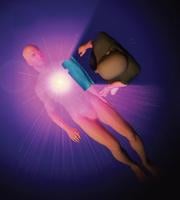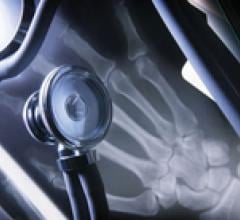January 21, 2011 – The U.S. Food and Drug Administration (FDA) this week unveiled a plan containing 25 actions it intends to implement during 2011 to improve its 510(k) review of medical technology, the most common path to market for medical devices.
January 21, 2011 – Intravascular ultrasound (IVUS) enabled physicians to more accurately assess the risk of individual blockages than the use of the current standard of angiographic imaging alone, according to a new study.
January 20, 2011 – European CE mark approval was granted to expand the indication of Abbott’s Xience Prime everolimus-eluting coronary stent for the treatment of critical limb ischemia (CLI) or severe claudication (pain) of the lower leg. CLI is the most advanced form of peripheral artery disease (PAD) that can ultimately lead to limb amputation.
Cardiac PET/CT represents a major advancement in cardiovascular diagnostics, offering significant clinical and ...

The Society for Cardiovascular Angiography and Interventions (SCAI) this week published guiding principles and best practices for the development of radiation safety programs in cardiac catheterization laboratories.
January 20, 2011 – Results from a large, worldwide, clinical trial show evidence that a first-of-its-kind pacemaker system is safe and effective to use during magnetic resonance imaging (MRI). During the trial, no MRI-related complications were reported in patients with the pacemaker system before, during, or after an MRI examination.
Continuing to build a portfolio of transcatheter structural heart technology, Boston Scientific today signed a definitive merger agreement to acquire Atritech Inc. Atritech developed the Watchman device, which is designed to close the left atrial appendage (LAA) in patients with atrial fibrillation who are at risk for ischemic stroke.
SPONSORED CONTENT — Studycast is a comprehensive imaging workflow system that allows healthcare professionals to work ...
January 19, 2011 – The patient support group Mended Hearts, in partnership with Daiichi Sankyo Inc. and Eli Lilly and Company, this week launched the Stent Hub – an online patient and caregiver resource for acute coronary syndrome (ACS) patients who were treated with percutaneous coronary intervention (PCI).
January 19, 2011 – GE Healthcare and Veran announced a strategic supplier agreement this week in which GE became the exclusive distributor and reseller of Veran’s ig4 fusion imaging angiography navigation system in the United States.

January 19, 2011 – The U.S. Food and Drug Administration (FDA) granted conditional approval to modify the CoreValve U.S. pivotal clinical trial to eliminate the medical management arm of the study.
Providing exceptional cardiovascular care for patients to achieve the best possible outcomes is the number one goal for ...
January 19, 2011 – Stents can open up blocked brain arteries after other stroke treatments have failed, according to research presented this week at the 23rd annual International Symposium on Endovascular Therapy (ISET).
January 19, 2011 – Siemens Healthcare is partnering with Endosense for the integration of the contact-force data provided by Endosense’s TactiCath force-sensing ablation catheter with Siemens’ electrophysiology (EP) solutions.
January 18, 2011 – The first endovascular device approved for the treatment of pulmonary embolism (PE) was granted CE-mark approval this week in Europe. The Ekos EkoSonic Endovascular System was originally designed and approved to dissolve blood clots in the arms and legs.
Cardiac positron emission tomography (PET) is growing in popularity among cardiologists because it provides the ability ...
January 19, 2011 – The U.S. Food and Drug Administration (FDA) this week granted market clearance for Cook Medical’s Formula balloon-expandable renal stent system. The approval includes both the Formula 414RX Renal and the Formula 418 Renal stents.
January 13, 2011 – A catheter that removes emboli and thrombi from vessels in the coronary and peripheral vasculature has received 510(k) clearance from the U.S. Food and Drug Administration. The Xpress-Way RX manual extraction catheter is manufactured by Kaneka Corp. and distributed by Atrium Medical in the United States.
January 13, 2011 – The first patients have been enrolled in a trial evaluating the effectiveness and safety of a force-sensing ablation catheter for treating symptomatic paroxysmal atrial fibrillation (AF). The TOCCASTAR trial will study Endosense’s TactiCath force-sensing ablation catheter.


 January 21, 2011
January 21, 2011













